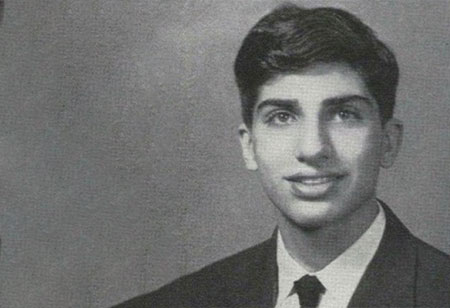
CEO Insights Hall of Fame: 8 Pioneers Who Defined the Indian IT Industry

India is ready to conquer this tech-ade. But as Rome was not built in a day, so wasn't the mighty Indian tech industry. Several Indian technopreneurs built this industry brick by brick. Today, Indian-origin CEOs are not only ruling the country's tech realm but defining the future of the global technology landscape from the top of the corporate mountain, with an increasing number of Indian executives taking the reins at significant software firms. Recognizing the trailblazers who paved the way for a new generation of talented technologists is important. We intend to honor the pioneers of the Indian IT industry through this article.
Ratan Tata: An Empire Touching People’s Lives
 With almost 150 years of legacy to uphold, Ratan Tata, the iconic face of the Tata Group, continues this tradition of acquiring new companies. But did you know that, in response to a call from JRD Tata, he started his stellar career with a modest, typewritten Resume instead of an impressive one?
With almost 150 years of legacy to uphold, Ratan Tata, the iconic face of the Tata Group, continues this tradition of acquiring new companies. But did you know that, in response to a call from JRD Tata, he started his stellar career with a modest, typewritten Resume instead of an impressive one?
In his own special way, Chairman Emeritus Ratan Tata has led the Tata group into a new era by acting as both the torchbearer and the transformer. Many people thought that Tata was an outsider who lacked the charisma and skill of the legendary figure who came before him. He was believed to be an accidental chieftain, mainly brought to the top by his ancestry and surname. Still, his ideas and foresight proved why he was the pinnacle of success. By coincidence or luck, the opening up of the Indian economy and Tata's nomination as chairman came simultaneously.
Destiny Came through a Phone Call
After completing his studies in the US, Ratan Tata was just like any other young person aspiring to enter the workforce. He had never written a formal résumé before, but an unexpected phone call from JRD Tata pushed him to create his first one. In response, he quickly composed a résumé on the IBM office's electric typewriter and gave it to the person. In 1962, Tata secured his first job at Tata Industries, thanks to the seemingly insignificant task of writing a résumé. From Telco (now Tata Motors) to Tisco (now Tata Steel), a journey through the conglomerate's several branches ensued.
Proving the ‘Heir’ Stereotypes Otherwise
Despite the fact that Tata's early years and education—which included an extensive stay at Cornell University—had given him a global outlook, the world was unwilling to welcome him. Many questioned whether he could carry on the large shoes of his predecessors, seeing his rise to the position of chairman in 1991 as little more than inherited. Still, there were signs of change. Ratan Tata saw an opportunity to rejuvenate and restructure the group's varied companies as India's economy started to open up.
By crushing doubts and capitalizing on the nation's changing economic circumstances, Ratan proved he was more than just an heir; he was a visionary leader.
Cemented Tata Group’s Empire into Every Strata of Society
Having acquired the tea company Tetley for $407 million in 2000, the Anglo-Dutch Corus Group for $12 billion in 2007, and Jaguar Land Rover for $2.3 billion in 2008, the corporation gained notoriety for its ‘reverse colonialism’ under the visionary direction of this charismatic leader. Worldwide hotels, chemical firms, communications networks, and energy providers were also acquired by the company. The Tata Group currently has businesses in every sector of society, including energy, automotive, engineering, and information technology, and it works in more than 100 countries on six continents.
In the middle of all the company accomplishments, it is important to take note of where Tata's core principles of ethics and values arose. Ratan, who was raised in luxury, was constantly reminded of morality and humility by his grandmother, Navajbai R. Tata.
Committed to a Lifetime of Giving
Ratan has had a remarkable journey of success and charitable giving, being recognized with esteemed awards like the Padma Bhushan and Padma Vibhushan. He has received recognition for aiding others and devoting time and resources to researching concerns and challenges to provide creative, long-lasting solutions. This all-encompassing strategy aims to have a bigger impact and inspire other big businesses, like Google and the Bill & Melinda Gates Foundation, to join hands with government organizations on projects.
From creating his first résumé to leading a multinational conglomerate, Ratan Tata's career path illustrates that journeys can start with modest, unassuming actions motivated by a greater vision and unshakable principles.